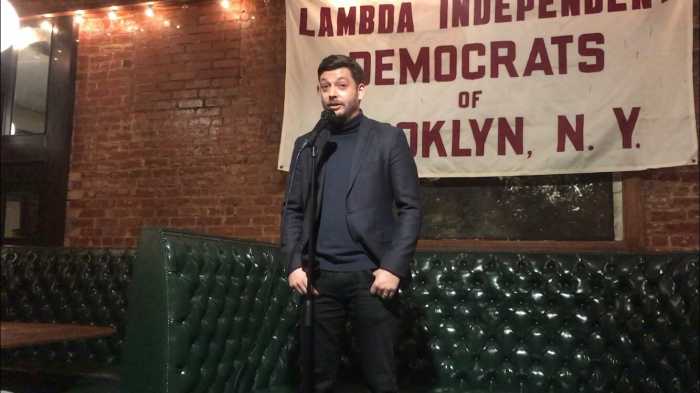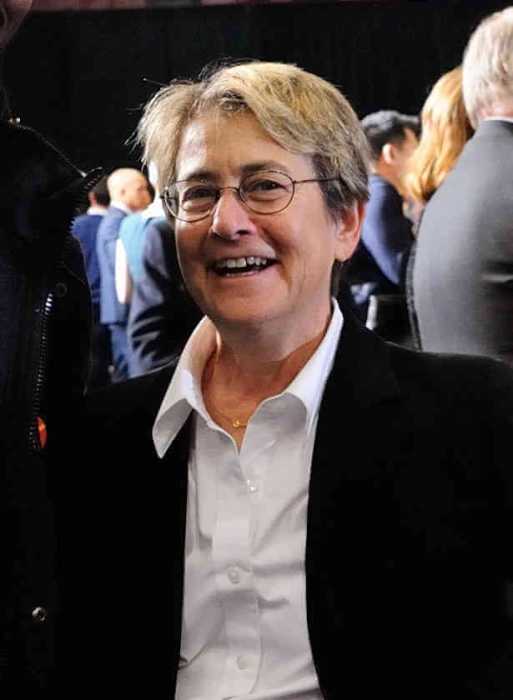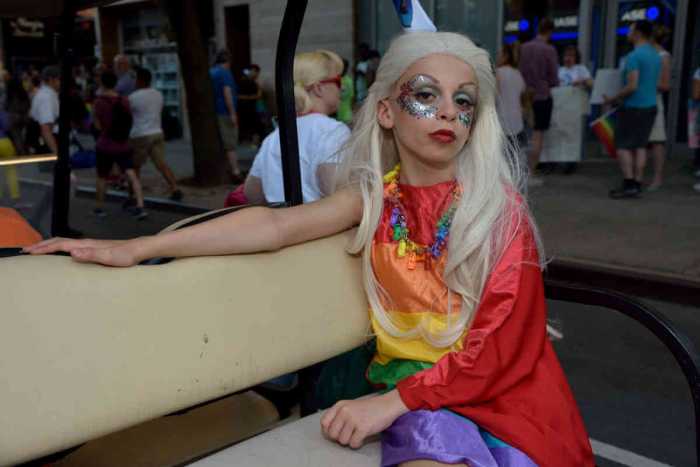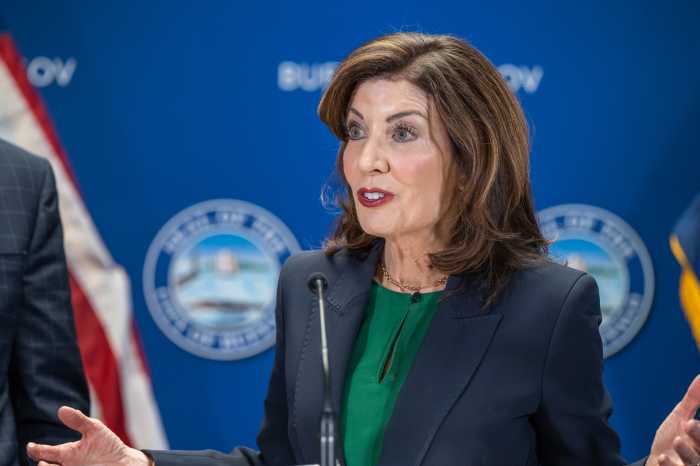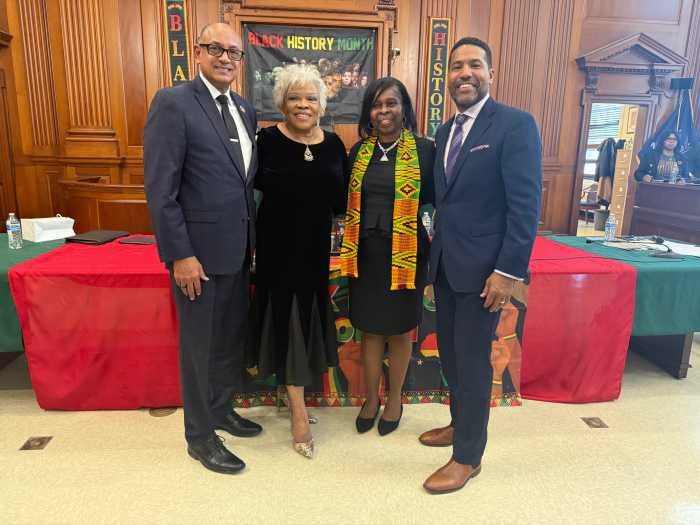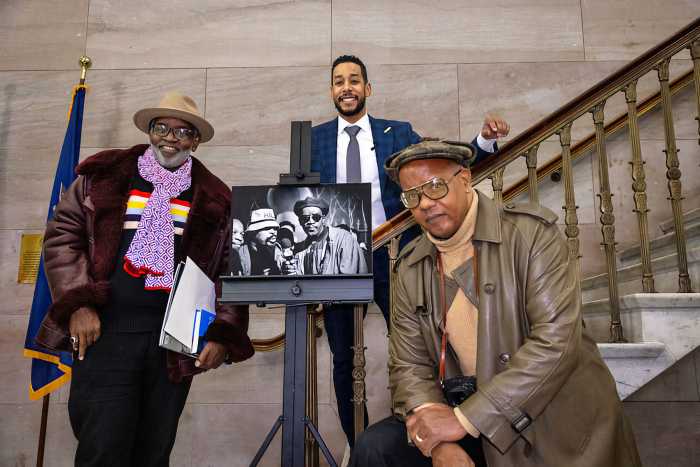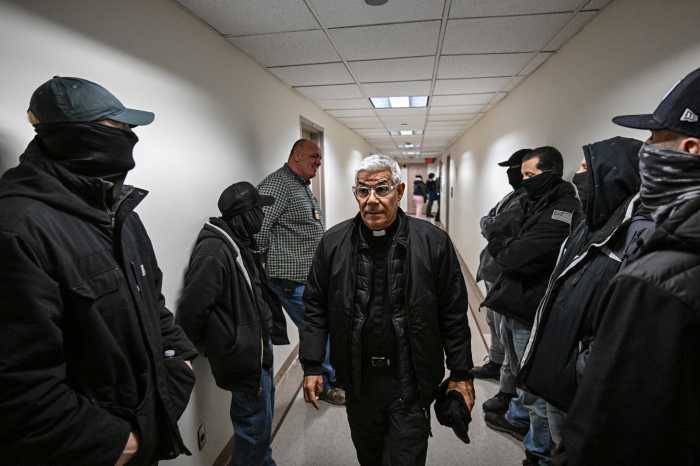Brooklyn Democratic Party bigwigs used a new gender non-binary inclusion rule to consolidate power among their executive ranks, progressive pols and activists — including the borough’s LGBTQ political club — claim.
The 42 members of the organization’s Executive Committee passed a rule change on Sunday ostensibly to allow non-binary Democrats to run for the larger, roughly 2,000-member County Committee — rather than specifically designating half the seats for males, and half for females.
While progressive activists had pushed for that change, many were blindsided when the rule included a provision that gave the Executive Committee — which has historically been composed of mostly party insiders — far more power in controlling the party apparatus than the larger County Committee, which tends to include more grassroots members.
Lambda Independent Democrats, other queer activists object to party’s proposal to expand gender-neutral representation
Under the new rules, the Executive Committee members, who hold the unpaid office of district leader, can now nominate and fill vacancies in the County Committee — effectively allowing them to determine the makeup of the party’s rank-and-file membership.
“It’s pink-washing. You’re saying you’re being inclusive but in the same breath you’re adding all of these other things that negate that,” said Sunset Park District Leader Julio Peña, a progressive reformer elected to the Executive Committee earlier this year. “They used an opportunity to include folks who were not able to be part of County Committee, [and] co-opted it as an opportunity to power grab for filling vacancies for everyone.”
The November 29 rule change was touted as making the County Committee more inclusive by creating 84 gender-neutral slots for Brooklynites to run for office as a County Committee member, the lowest rung of elected office representing the borough’s Election Districts, which typically encompasses a block or two. There are more than 5,400 of those seats, with roughly 2,100 of them currently filled, versus 3,300 that sit vacant. The 84 gender-neutral slots would be at-large posts, with four representing each of the borough’s State Assembly Districts.
Each such district has either two or four seats, equally divided between male and female members, a stipulation that was a 1930’s-era measure meant to bring more women into politics, but has more recently disenfranchised people who don’t identify with a binary gender.
Six non-binary candidates for County Committee sued the Brooklyn Dems in April to drop its gendered designations, which led party boss and Flatbush Assemblywoman Rodneyse Bichotte to convene a task force in August to work on making the hyper-local elected offices accessible to Kings County residents regardless of gender.
The new rules first appeared at a meeting of the task force on November 23, where panelists voted to pass them by a nine-to-four margin, with one abstention, before moving to the party’s Executive Committee last Sunday.
The president of the Brooklyn LGBTQ political organization Lambda Independent Democrats, Jared Arader, who sits on the task force, described the power shift as a “poison pill,” and the club released a lengthy statement condemning the party move.
“We strongly disagree with lumping together a proposal advancing equality with one that places power in the hands of fewer members of our county party,” the statement reads. “Additionally, it is insulting to TGNCNB people to use an opportunity to advance gender equality as a way to gain power. “
Concerns by some LGBTQ members of the task force and Executive Committee such as Peña were dismissed by party leadership during the Sunday meeting as “nitpicking,” and the first-term Sunset Park politician said in a prepared statement Monday the disregard for his concerns as a queer person were especially hurtful.
“I’ve had to endure a lot of toxicity as a queer person of color, but what I won’t do is be used as a bargaining tool to power grab votes, during a pandemic, in the name of inclusion,” Peña wrote. “Allies should be listening to voices most impacted, instead we were shunned and ignored. We deserve more than this.”
A party spokesperson said that the ruling was aimed at bringing as many newcomers into the party as possible in time for their next full organizational meeting, which they’re supposed to hold in the coming weeks, adding that many candidates also failed to get on the ballot for the primaries in June due to a shortened petitioning window amid the pandemic.
“We are pleased that the Executive Committee voted for a more inclusive county committee by approving a transparent resolution that adds at-large positions with no gender designation, which was first proposed by its task force, with a diverse array of party members who had expressed concern at the antiquated rule,” said George Arzt in a prepared statement. “The Executive Committee, mindful that the pandemic cut short petitioning for the County Committee, additionally voted to insure there was as full a complement of County Committee members as possible at the beginning of county organizational meetings to allow robust participation, as opposed to naming them at meeting, when they would then have no opportunity to participate.”
The new rules are a temporary measure for the current term of office, which lasts until the end of 2022 and the task force will continue to work to create a more permanent way to include gender-nonconforming people by the next election cycle in June of that year.
The task force will hold a public input session on the amendment via Zoom on December 7 at 8 pm. To register, you can fill out a submission form here.
This article first appeared in Gay City News’ sister publication, Brooklyn Paper. To sign up for the Gay City News email newsletter, visit gaycitynews.com/newsletter.


